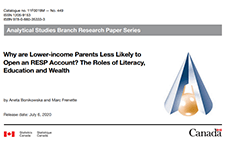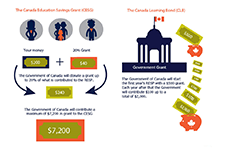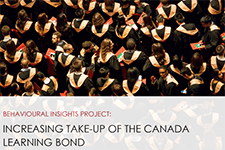This dissertation evaluates the effects of various public policies related to education in Canada. The results indicate that the actions of parents are generally consistent with the procrastination saving model. I estimate that higher matching rates on contributions and lump-sum subsidies increased RESP contributions and savings among lower-income families who applied for the programs. Furthermore, grants conditional on opening an account generally caused all parents to start saving earlier for their child. Chapter 4 evaluates the impacts of education savings in incentivised education savings accounts on children’s overall education savings and their academic performance. To identify these effects, I employ an instrumental variable approach that relies on the structure of Canadian saving incentives offered to parents for contributions to RESPs. I find no effect of the saving incentives on parents’ overall decision to save for their child’s post-secondary education. Among parents who do save, I estimate a small but significant crowding-out effect of RESP savings on education savings in other types of saving vehicles.
Why are lower-income parents less likely to open an RESP account? The roles of literacy, education and wealth




